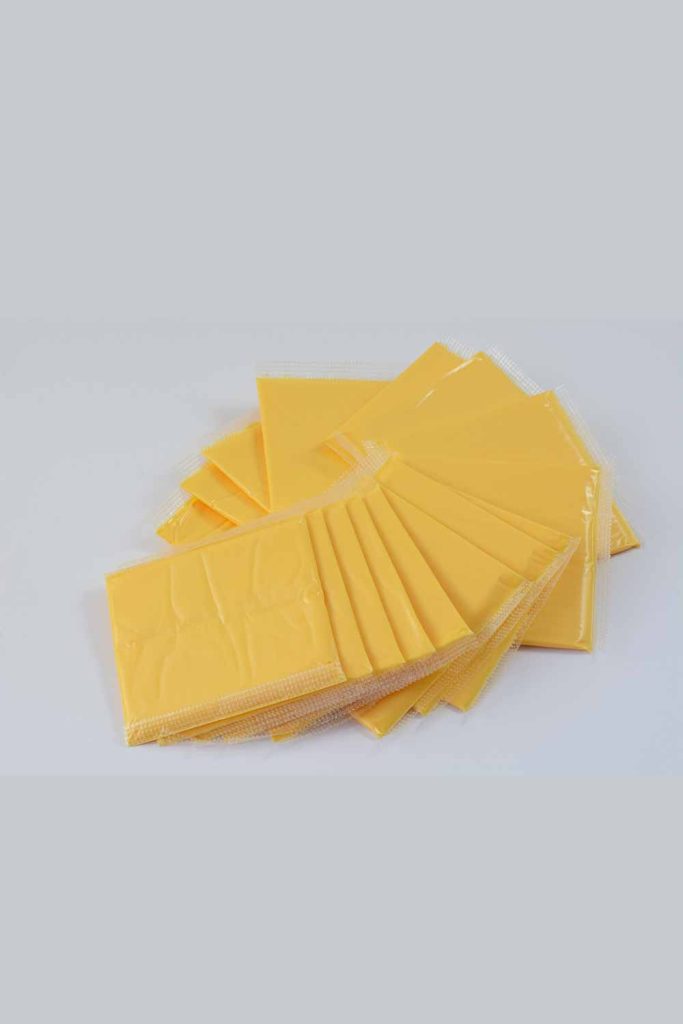Do You Know The Real Reason Why This Is Called American Cheese?

Embark on a delightful journey through the captivating world of American cheese. As we explore its name, origin, and culinary transformation, we uncover the layers of history that have shaped this versatile and beloved kitchen staple.
The Origins
In the early 1910s, Swiss immigrant Walter Gerber left an indelible mark on the cheese landscape. Seeking a longer shelf life and superior melting properties, Gerber, alongside other dairy pioneers, ingeniously blended cheddar and Swiss cheeses.
This innovative fusion laid the groundwork for the birth of American cheese.
Why “American”?
Beyond being a geographical label, the name “American cheese” is a testament to the visionary spirit of American dairy pioneers. It signifies the determination to craft a cheese uniquely tailored to the demands of an evolving processed food industry, showcasing the nation’s knack for culinary innovation.
Crafting Convenience
American cheese faced early criticism for its processed nature, yet its unparalleled convenience prevailed. The ease with which it melted and its versatility made it a kitchen essential.
This period marked the assimilation of American cheese into households across the nation, becoming a key player in the evolving American culinary landscape.
Innovation Amid Criticism
As culinary tastes evolved, American cheese found itself navigating a landscape marked by a growing preference for authenticity and natural flavors.
Despite criticism for its processed character, the cheese became a canvas for innovation, adapting to changing consumer preferences while preserving its status as a culinary icon.
Resurgence of Tradition
In recent times, a culinary renaissance has emerged, challenging the longstanding dominance of processed cheeses. The desire for authenticity has sparked a revival of interest in traditional cheese-making methods.
Chefs and consumers alike are exploring a diverse range of artisanal alternatives, seeking the rich flavors and textures that define traditional cheeses.
The Natural Ingredient Wave
Amid a broader movement toward conscious consumption, American cheese is now part of a larger conversation about the importance of natural, high-quality ingredients.
Once celebrated for its processed convenience, it now stands at the crossroads of tradition and innovation, prompting a reevaluation of its place in the culinary landscape.
Beyond the Slice
American cheese has transcended its role as a mere sandwich filler. Chefs and home cooks alike are experimenting with creative uses, incorporating it into gourmet dishes and fusion cuisine.
The adaptability that once made it a convenience now positions it as a versatile ingredient in the hands of culinary enthusiasts.
Cultural Significance
American cheese has become more than just a culinary delight; it holds cultural significance. Its presence in classic American comfort foods has woven it into the fabric of the nation’s food identity.
Whether gracing a burger or sandwich, its melty goodness is a nostalgic reminder of shared meals and cherished traditions.
As we reflect on the name, roots, and culinary evolution of American cheese, it becomes clear that this seemingly simple delight is a dynamic force in the world of food.
From its humble origins to its current status in a culinary renaissance, American cheese stands as a symbol of adaptation, resilience, and the ever-evolving tapestry of American gastronomy.

More interesting articles you may be interested in reading:

See How Much Propane Is Left In A Tank With No Gauge
How To Remove A Tree Stump Painlessly
10 Vital Home Maintenance Tasks You’ll Regret If You Forget
Thanks for reading and be sure to share this info with your friends using the social share buttons below.
Talking about social stuff, consider liking our Facebook page to keep up to date with our articles. Check out our other articles for more mental scoops!
